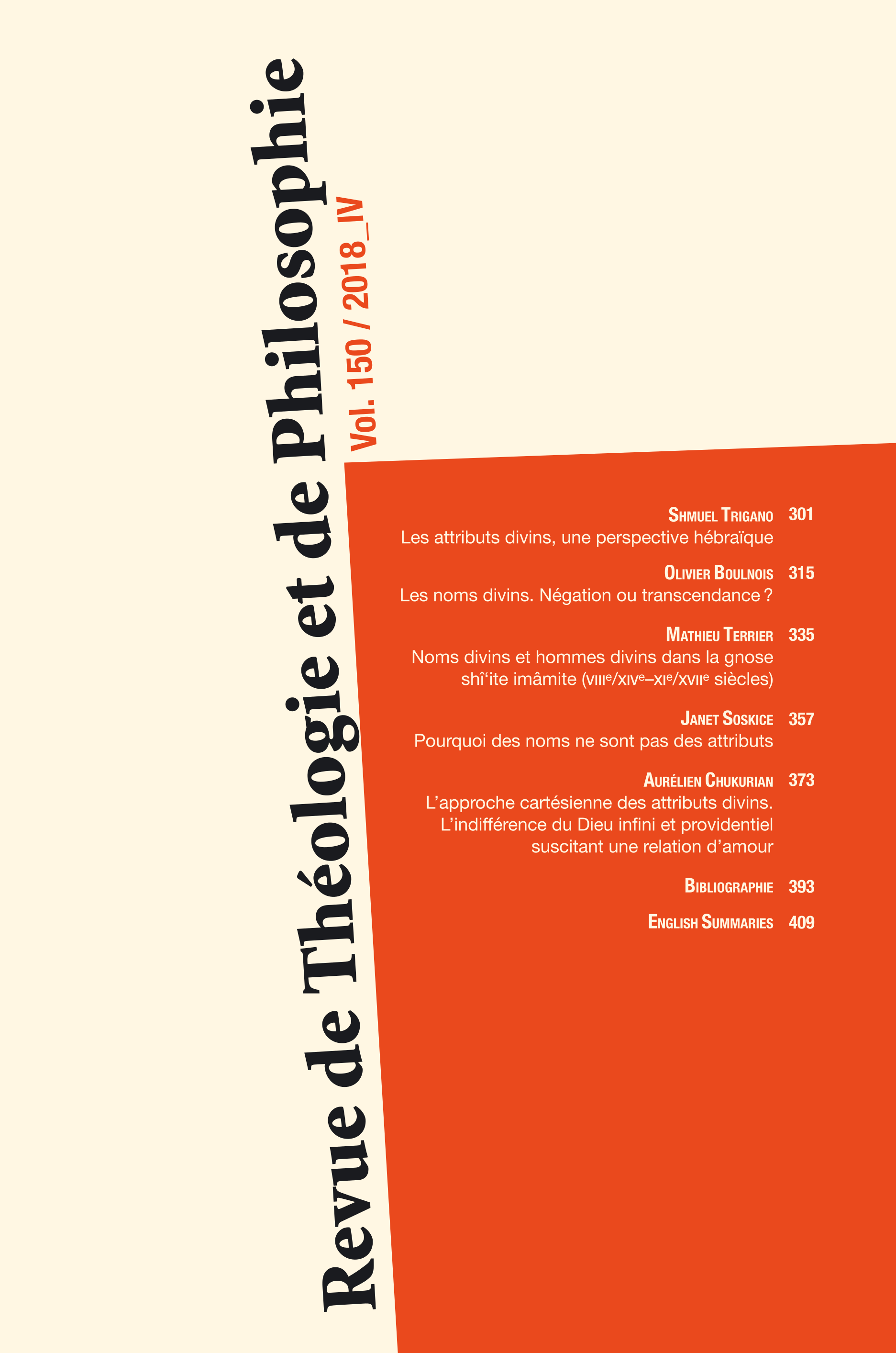The Divine Attributes: A Hebraic Perspective
Abstract
The question of anthropomorphisms first arose at the intersection of Hebrew and Greek languages. In Hebrew, an attribute is a sort of apposition since if it is in the present tense – and it cannot be else –, it cannot be really expressed since the verb “to be” is never conjugated in the present. The question becomes more complicated when one takes into account the fact that the name which designates the Divine is built on the radical form of the verb “to be”. The problem which the attribute poses to Hebrew monotheism is that it implies a form of divine corporeity, even as the Divine is believed to be beyond all representation and any spatial inscription. Jewish philosophy has articulated many different solutions to the question raised by categories such as body, presence, gaze, God’s image, language, voice and speech. This article, by playing the Divine and the human in a reciprocal equilibrium, concludes by stating that for a Hebrew consciousness the world is unfinished, embryonic, and thus it cannot be the object of attributing to being which is in becoming – except for the attribute of rahamim, the mercy of the womb, insofar as it carries the being to be.
How to Cite
More Citation Formats
Issue
